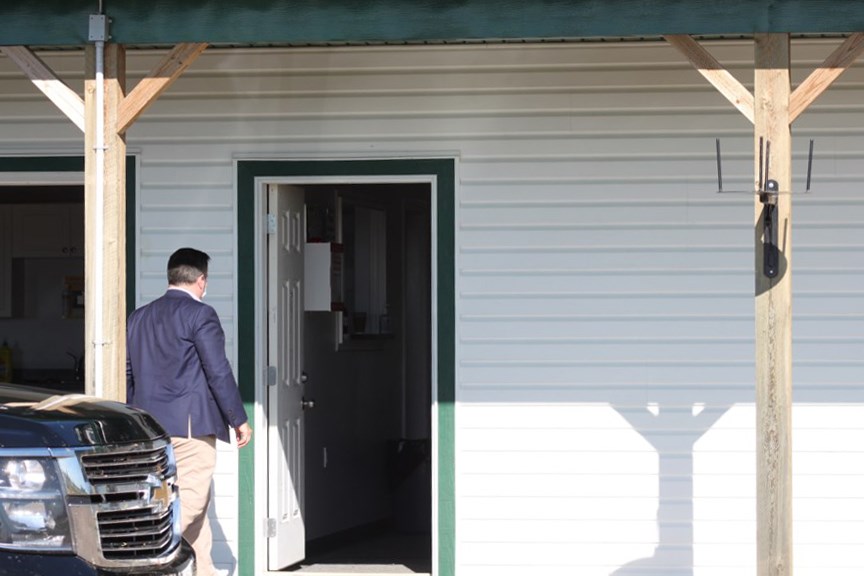LAKELAND - Alberta Premier Jason Kenney thinks some people may be “jumping the gun” when it comes to the reaction to his government’s proposal to change how oil and gas industry properties are assessed for tax purposes. At this point, the proposal is little more than a government “think piece,” he told Lakeland This Week last Thursday in Lac La Biche.
"They're not easy issues, but we will listen to municipalities . . . We're not going to do anything that is radical,” Kenney said. “We're not going to massively undermine the revenue base of the RMs (rural municipalities). At the same time, we would ask those RMs, especially in the south and east of the province, to look at what they can do to help us avoid mass bankruptcies in the business."
Municipalities in the Lakeland region have responded swiftly and loudly to a consideration on the table to create a new formula for how the province assesses large-scale oil and gas taxpayers in the province in light of the economic slump in the industry. One of those scenario’s would see an estimated $300 million disappear from rural municipality tax coffers in next year’s budget alone. It’s a hit rural municipalities aren’t prepared to take.
Kenney is urging municipalities to work together on a “growth agenda,” and challenges any municipality to “to do what we are doing, which is to avoid raising taxes in any case. We all need to work together to save businesses during this crisis and to ensure future investment. If we don’t do that, none of us will be able to afford the kind of public services that Albertans want.”
The County of St. Paul believes the result of the province’s proposed change to the tax model will not only negatively impact municipal revenues, but could offload any shortfall, which is estimated to be between $2.3 million and $4.2 million in year one, onto its residents.
“The Province, however, has not provided any information regarding what the change in assessment looks like past year one. Based on the information the County has, it appears that the revenues will decrease year over year due to aggressive depreciation of assets under the proposed models,” the county noted in a statement following a sit down Wednesday evening with the premier in St. Paul.
“We know that our residents can’t afford massive tax increases and the County can’t afford huge cuts to their revenue base,” Reeve Steve Upham said. “This reduction in assessment will increase the cost of seniors’ housing and school tax requisitions on the balance of taxpayers in the County without even considering the increase to the municipal tax rate, which would be required to keep service levels at par.”
Based on the various scenarios presented by the Province, in order to maintain current levels of service the County would have to consider one of or a combination of the following: increasing the residential tax rate by between 49 per cent to 89.7 percent, increasing the non-residential tax rate by 12.5 per cent to 25.5 per cent, and/or reducing service levels and the number of employees by 22.6 per cent to 41.4 per cent.
Town of St. Paul Mayor Maureen Miller has come out on the side of rural municipalities and it is quickly becoming evident a line in the sand is being drawn.
“We understand that these are tough times, and that we all need to make sacrifices to get through this economic slump, but there are so many things wrong with this review it’s hard to know where to begin.”
MD of Bonnyville Reeve Greg Sawchuk said the MD, which is oil central in the Lakeland, stands to lose between $8 million and $14 million in revenue in the first year.
“The downfall would be on everybody in the area,” he noted. “There’s no way we could pass on that revenue loss to residents so what it would mean is a shot to our capital spending. That means fewer projects that we can support in the town, city, and those of our own as well.”
Lac La Biche County Mayor Omer Moghrabi is calling for residents to contact the premier and their MLA about concerns. His municipality stands to lose an estimated $6 million.
Moghrabi said the process of the plan has not involved municipal officials to this point. By issuing media releases and encouraging the public to contact their provincial representatives, Moghrabi hopes the residents take part in the call to action and become part of a process that could impact them and millions of other Albertans directly if passed.
"This is their time to engage," he said.




